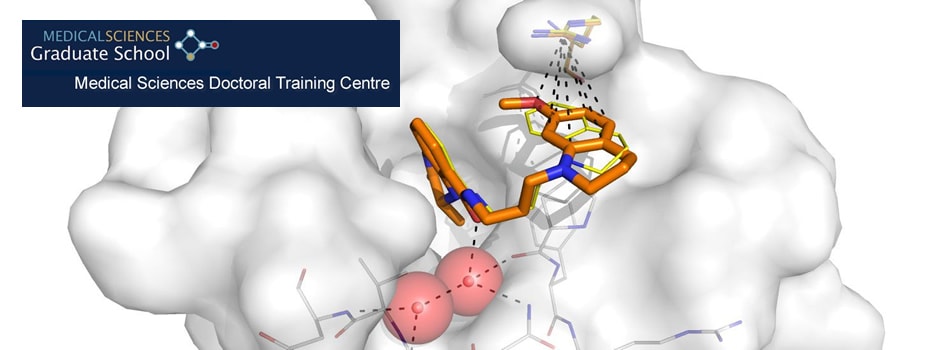Image Credit: Prof. Stuart Conway, Dept. of Chemistry, University of Oxford
Chemistry in Cells: New Technologies to Probe Biology and Medicine
DPhil programme for entry in October 2024
What Does Chemistry in Cells Offer?
Explore our exceptional DPhil course with a unique structure that’s designed for you.
Are you an outstanding graduate in physical/chemical sciences considering advanced research at the interface with biomedicine?
Apply today for our unique Wellcome Trust 4-year Chemistry in Cells programme. You will receive bespoke training in cutting-edge chemical and physical science techniques focusing on the quantification of biologically-important molecular interactions, and their consequences in physiologically-relevant settings.
It is currently impossible to accurately and directly quantify interactions of molecules, and their consequences, in the complex physiological settings relevant to diagnosis and treatment of disease. To address this unmet need, your research will seek to harness physical science-based approaches to develop technologies that will underpin research across the spectrum of front-line cell biology and biomedical science including diseases such as cancer, Alzheimer’s Disease and metabolic disorders including diabetes.
You will work with, and be supported by, the highest calibre academic and industrial scientists with expertise in chemistry, physics and biomedicine.
You will develop life skills that will set in motion a whole host of career possibilities.
What Makes Chemistry in Cells Unique?
We’ve responded to student and industry feedback in designing the course. Chemistry in Cells will provide you with unique opportunities and training to carry out the highest quality research today. Our course will prepare you for your future career, wherever it leads.
Our programme combines both taught and practical courses that will engage, enable and empower you during your project.
Our DPhil programme is focused on promoting a diverse and positive research culture, providing the most inclusive and collaborative research environment. You will be trained and supervised by academics from a wide range of disciplines, and career mentors from a range of sectors. They will nurture and challenge you throughout your tenure, providing an exceptional basis to equip you as a problem solver for a diverse range of 21st century workplaces.
Our programme benefits from closely integrated collaborations with industry and academia. This means the DPhil in Chemistry in Cells at Oxford can offer you a broad choice of lab placements and can connect you with leading pharmaceutical companies and high-calibre clinical placements.
We offer students a stipend from £23,955 per annum and support to participate in relevant conferences, placements, and industrial experiences. You will also have the opportunity for short-term flexible funding post-completion of your DPhil to support your future career transitions.
Applications are open for entry in October 2024.
Enquiries are welcome at any time. We are currently open for applications for entry in October 2024. All applications must be completed by 12 noon UK time on Friday 5 January 2024. To minimise unconscious bias during recruitment we will be anonymising applications, using a standard CV format, and taking into consideration socio-economic data in the assessment of applications. We are taking positive action to address the under-representation of Black-British students in STEM subjects at doctoral level in the shortlisting of applications to interview, for more information see Pilot selection procedure: MPLS doctoral training courses | University of Oxford.
Please contact our Graduate Studies Office if you have any further questions.

 Continue with Facebook
Continue with Facebook


